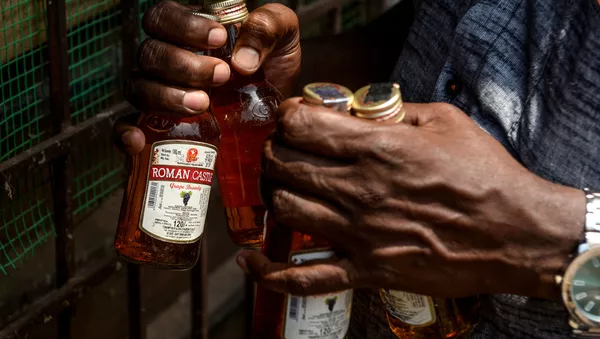India’s apex court on Friday said that states should consider home delivery or the indirect sale of liquor during the ongoing lockdown, as people have queued outside shops to purchase alcohol for days.
A bench on the Supreme Court made the remark during the hearing of a petition challenging the opening of liquor shops by several states. The court, however, refused to pass any orders on the petition and said “States should consider indirect sale or home delivery of liquor to maintain social distancing”.
The petitioner wanted the permission granted to open liquor shops during the lockdown to be struck down as “unconstitutional, null and void”.
“The reopening of liquor vends/shops which rely wholly on direct contact sales to the consuming public is resulting and will result in unmanageable crowds, leading to the high risk of transmission and spread of COVID-19 due to difficulties in managing physical distancing during such sales, apart from serious issues of maintenance of law and order at such liquor vends/shops”, reads the petition.
The petitioner wanted a prohibition on the sale of liquor until the National Disaster Management Authority or the federal government declares the country to be free of the infection.
Meanwhile, the Delhi government launched a mobile application on Thursday to stop overcrowding at liquor shops. The app is named QToken and a website ensures social distancing as citizens can buy a coupon online. The coupon will have details of a nearby liquor shop where a user can buy alcohol.
The federal government relaxed the norms of the lockdown and allowed the opening of standalone liquor shops on 4 May, but the opening of liquor shops in Delhi and several Indian states saw long queues flouting social distancing norms and at many locations, security personnel had to be deployed to restore order.
The current lockdown is expected to be over after 17 May, but the caseload of COVID-19 is still soaring in India. It was first detected in the country on 30 January. The cumulative caseload as of Friday was 56,342, which includes 16,540 cases of recovery and 1,886 deaths, according to data released by the federal Health Ministry.




